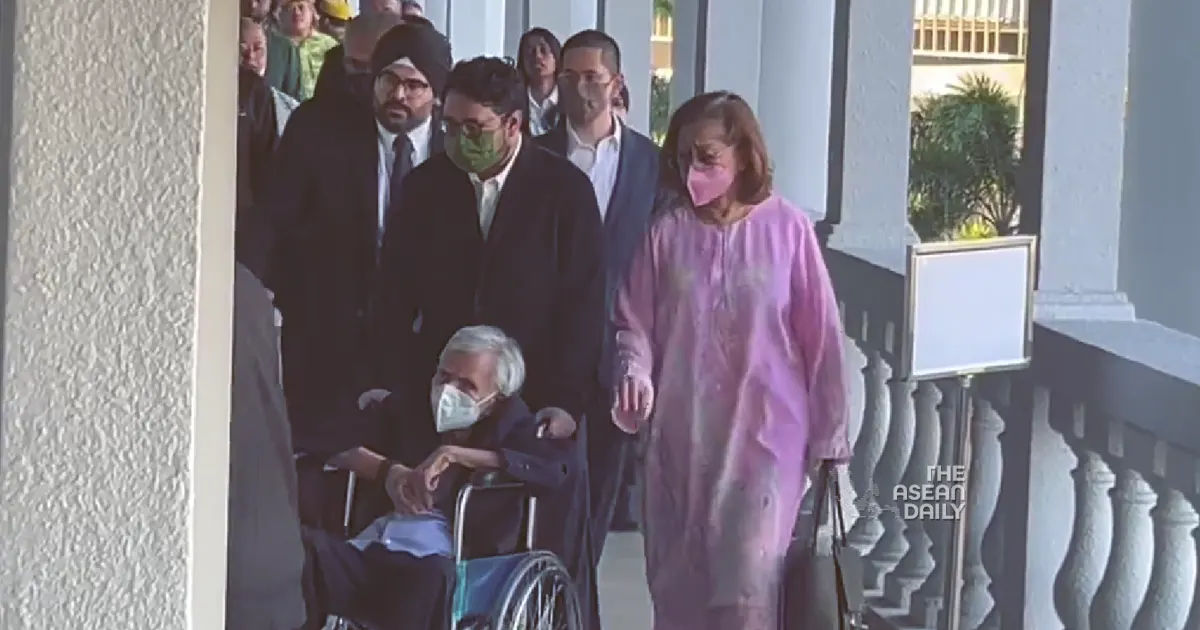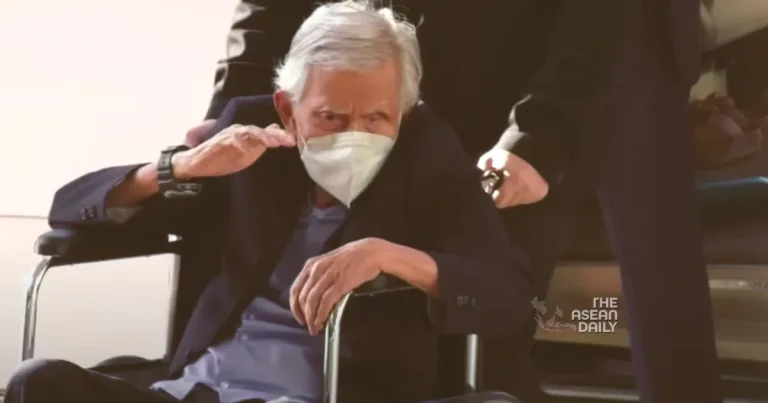30-1-2024 (KUALA LUMPUR) When former finance minister Daim Zainuddin finally submitted details of his assets to the Malaysian Anti-Corruption Commission (MACC) last month, he declared ownership of the ICB Group, an international financial institution based in Switzerland, along with some personal bank accounts. This did not match the extensive list of holdings the agency had compiled, including shares through known proxies in numerous public and private companies that had evaded scrutiny.
On Monday, a frail Daim appeared in a Malaysian court in a wheelchair and was charged with failing to declare assets in 38 companies, 25 properties and several luxury vehicles. He pleaded not guilty, as did his wife the previous week over similar charges.

“This is just the beginning of uncovering Daim’s wealth,” said a senior government official involved in the ongoing investigation. The case, described as analysing Daim’s “net worth and sources of funding”, is now expanding to other high-profile figures including former premier Mahathir Mohamad’s children, who have also been told to declare their assets.
MACC sources said associates and financial proxies will be questioned in coming days and required to detail their holdings. More charges against Daim are possible, they said.
“This is the biggest probe since 1MDB,” the official stated, referring to the scandal involving state fund 1Malaysia Development Berhad that saw ex-PM Najib Razak jailed for graft.
Investigation Dates To 1990s Political Clash
The inquiry has taken on major political overtones. After posting bail of RM280,000 on Monday, Daim accused current PM Anwar Ibrahim of pursuing a vendetta against him. “A wolf in sheep’s clothing who cries reform but does the opposite. I’m not bothered by my fate now, let Anwar do his worst,” he stated.
While credited for Malaysia’s economic success, concerns remain over Daim allegedly mixing his public and private interests. One controversial episode came in the 1980s when his family quietly bought a major bank shortly after he became finance minister. Amid public fury, the stake was sold back to the state.
The MACC probe represents a bold move by Anwar to clean up government. It revisits the uncertainty after the 1997 Asian Financial Crisis, when questionable cross-border deals and bailouts occurred under Daim and then PM Mahathir.
Anwar was sacked in 1998, convicted of corruption and jailed in a bitter conflict he maintains was a conspiracy because he opposed transactions and bailouts as deputy PM and finance minister. Speculation is now growing that bad blood between Anwar and Daim originates from Anwar’s opposition to controversial deals and bailouts benefiting politically-linked tycoons.
Singapore Businessman Eyed Over 1990s Deals
Investigations began last May when the MACC revisited Renong Berhad’s controversial 1997 acquisition of United Engineers Malaysia Berhad (UEM) for RM2.3 billion, seen as UEM overpaying to bail out debt-laden Renong.
Daim allegedly facilitated this deal that roiled markets as an UMNO bailout of unnamed investors. Investigators are also examining Daim’s role in returning RM4 billion of Malaysian stocks frozen in Singapore after 1998 capital controls, which a Daim associate won a concession to handle.
This associate, Singaporean Akbar Khan, also took over Malaysian conglomerate Multi-Purpose Holdings with Daim’s blessing and is now a focus of the widening probe. He will be questioned on his current business holdings.
While not on rich lists, bankers believe Daim ranks with top Asian tycoons. Beyond some bank accounts, his declaration to the MACC included the ICB Group, a curious financial institution operating in Eastern Europe and Africa since the 1990s.
Investigators are now uncovering a business empire involving dozens of local and foreign firms fronted by proxies representing Daim’s interests. “Each day brings new discoveries,” said the government official of the evolving probe.




